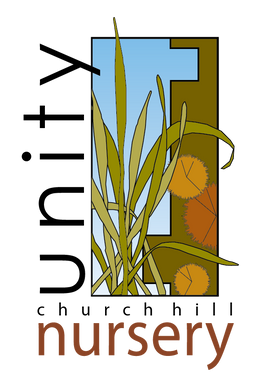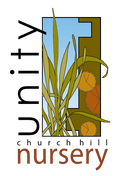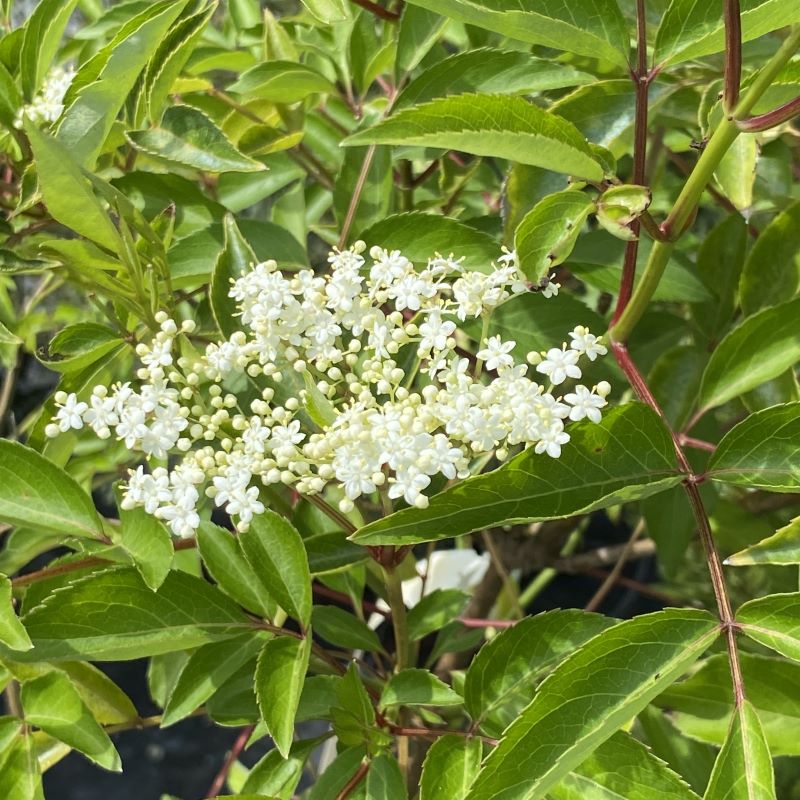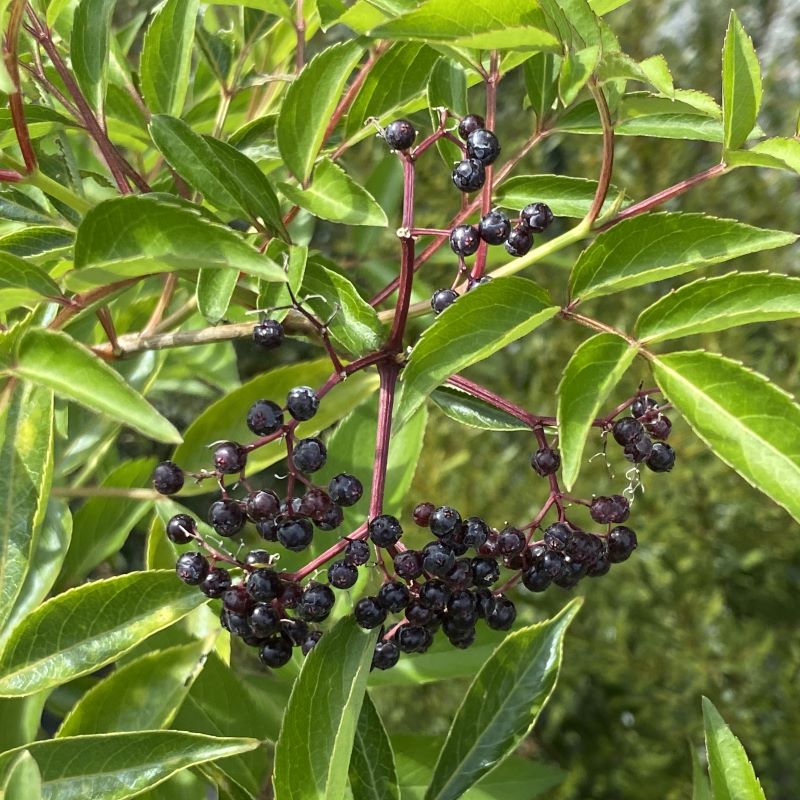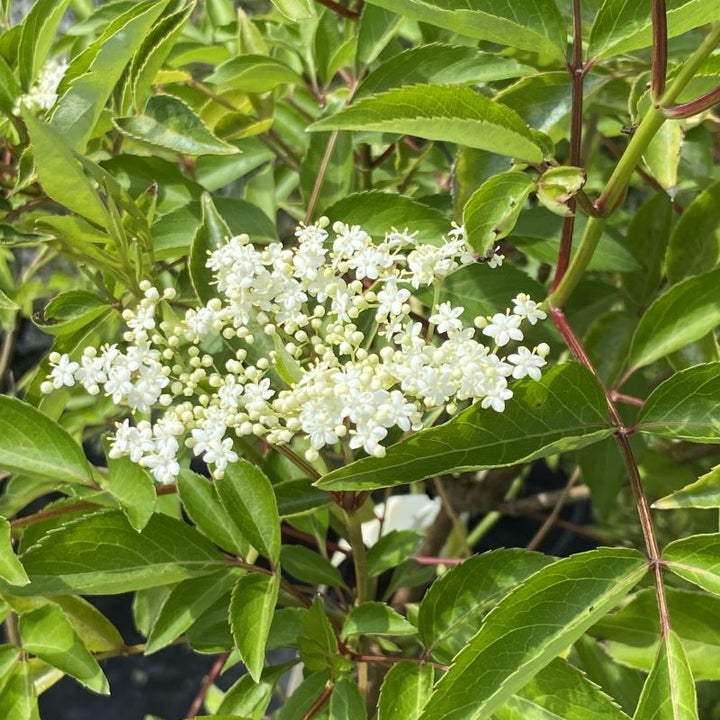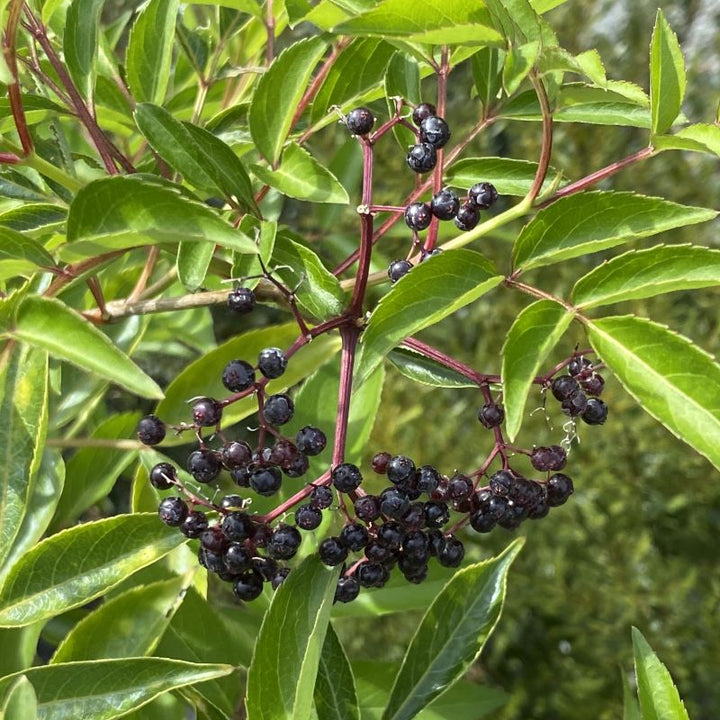Sambucus canadensis (American Elderberry)
- Low stock - 2 items left
- Inventory on the way
Sambucus nigra ssp. canadensis (syn. Sambucus canadensis), also known as American elderberry, is a native woody, deciduous shrub or small tree, growing to 5-12' tall and up to 6-10' wide, though more upright individuals may have less spread. American elderberry can be found in many areas of eastern North America, but especially along streams and marshes, and within moist forests and disturbed agricultural areas. American elderberry tolerates a wide variety of soil conditions and light conditions, but prefers slightly acidic, organically rich, moist soil. In ideal soil conditions, plants may reproduce by suckering growth and will form thickets if the suckers are not removed.
Sambucus is perhaps best known for its showy, lacecap clusters of fragrant white flowers which bloom in early summer. Sambucus flowers are favorites of butterflies and other pollinators, and turn to profuse clusters of purple-black berries that are attractive to birds; berries are also are edible when properly prepared.
Note: Proper preparation of elderberries can produce tasty pies, pancakes, jellies, and liqueurs, while improperly prepared elderberry can result in intense stomach upset.
